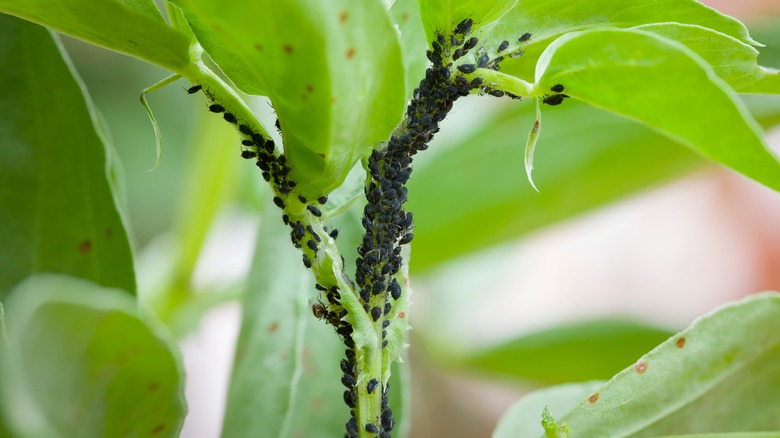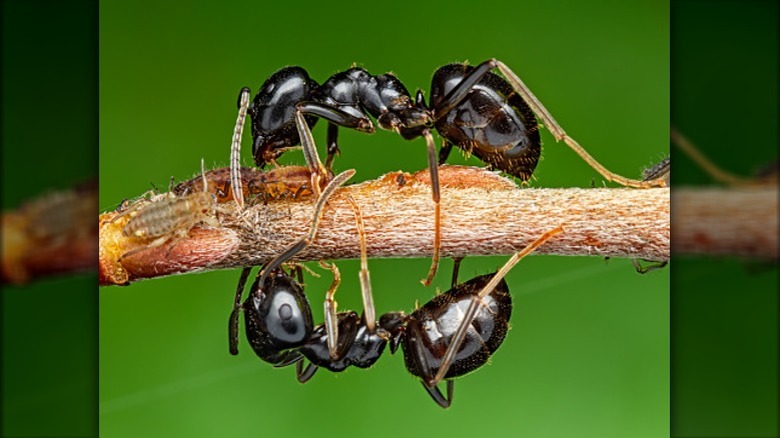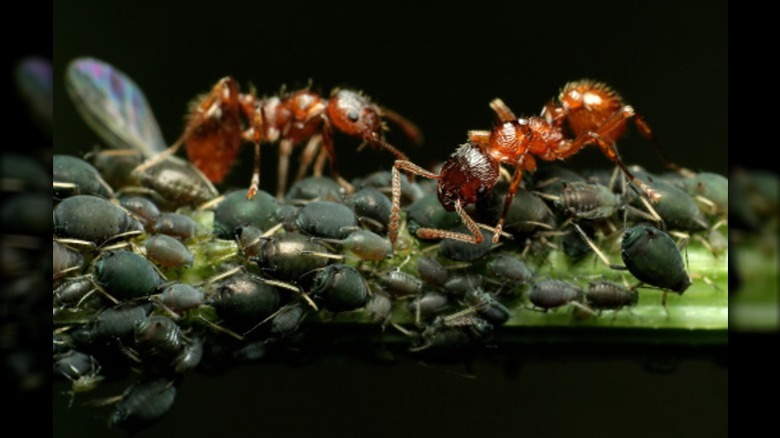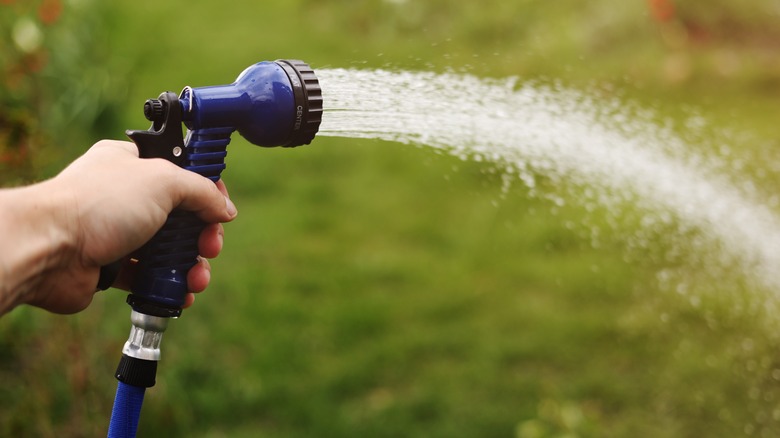Aphids And Ants: How To Tell Who Is Wreaking Havoc On Your Garden
Which came first, the chicken or the egg? Perhaps a better metaphor is, "What is harming my plants, the ants or the aphids?" We often see people asking how to get rid of ants in the garden, but these insects do not actually damage plants themselves. They work in cooperation with the true garden pests ... aphids. Ants and aphids go together like peanut butter and jelly — they both bring something unique to the relationship. Aphids do the damage, but the presence of ants indicates the problem.
If you see ants on your plants, look a little more closely, and you might see smaller insects. Aphids are only about ⅛ inch long with pear-shaped, soft bodies. Their colors range from almost translucent green to black, and they are usually found in clusters on the undersides of leaves, making them difficult to find until you notice your plants looking sickly. When you see ants and aphids together, it is because the aphids are using their sucking mouthparts to pierce sections of a plant to consume the sap. When an infestation appears, ants arrive soon after to protect and manage the aphids in return for the honeydew they produce.
How ants control aphids
The way ants interact with aphids is called farming. Yes, ants are farmers. Who knew, right? Like farmers, ants provide aphids protection from their most common predators, including ladybugs and lacewings. Although both types of insects seem quite small to us, ants are significantly larger than aphids, making them suitable bodyguards in this mutualistic relationship. Ants even work to protect the health of their herd by removing the bodies of dead aphids that have died of fungal disease, keeping the illness from spreading through the colony. The process is not all tender loving care, though. Ants will injure their farmed aphids if they try to get away.
Ants also act as shepherds, moving aphids from fully harvested food sources to fresh areas to eat, also known as the healthy parts of your plants. This complex manner of cooperation among tiny insects is really pretty impressive. But, of course, you're not thinking about the miracles of nature when you are looking at sickly plants covered in bugs.
How aphids help ants
Ants do not farm aphids out of the kindness of their little hearts. Like a farmer, these black bugs tend to the aphids in exchange for food, and here's where it gets a little weird. You might think ants are farming aphids to fatten them up and make a nice meal for themselves. No. It would also make sense that perhaps ants consume part of the juices that are produced from the plant they are eating, but that's also a big nope. Ants do not consume their herd; they milk them. Just let that settle in your mind for a minute. Ants milk aphids. We can't make this stuff up.
The milking process for these insects is not exactly similar to that of livestock. (It gets weirder here.) Ants love a sugary substance produced by the body of aphids called honeydew. And how do they get that sweet liquid? By rubbing the bodies of the aphids with their antenna, stimulating the insects to excrete honeydew. The ants consume their fill, and the farming process continues on.
Pest control methods
We now know that aphids arrive first to do the damage to your plants, and their presence attracts ants to protect and manage them. It is an odd and pretty fascinating relationship, but what you really need to know is how to get rid of these pests. If you catch them early, aphids are easily controlled by spraying your plant from top to bottom with the jet (or comparable) setting on a hose-end sprayer. This process knocks those buggers right off the plant and drowns them. If your infestation is particularly bad, you may need to check every few days and repeat the process. Be sure to get under the leaves where they like to hide.
Pesticides are an option as a last resort because many of the aphid's favorite sources of food are also attractive to important pollinators. These pests are notorious for taking over milkweed, the host plant for monarchs, along with a large number of blooming plants. If you cannot avoid using pesticides, only use them when the plant is not in bloom to avoid killing some of our most precious pollinators, including native bees.



